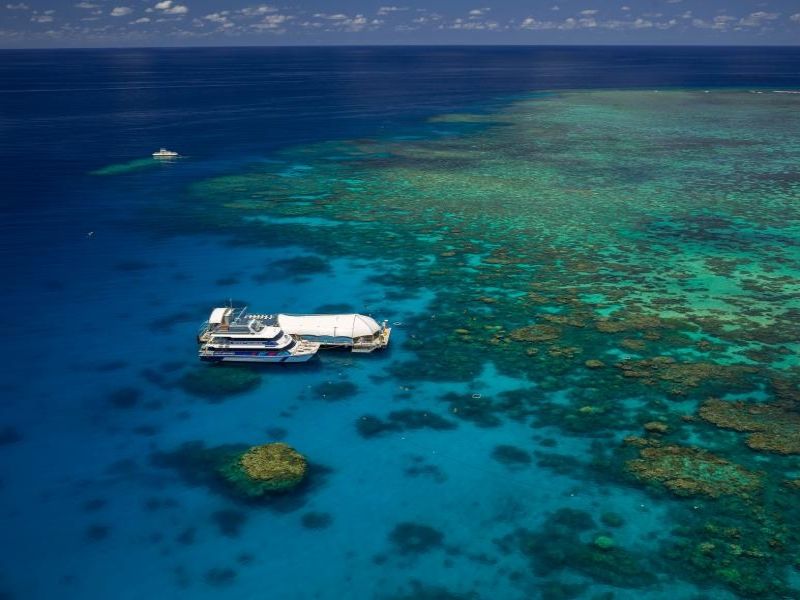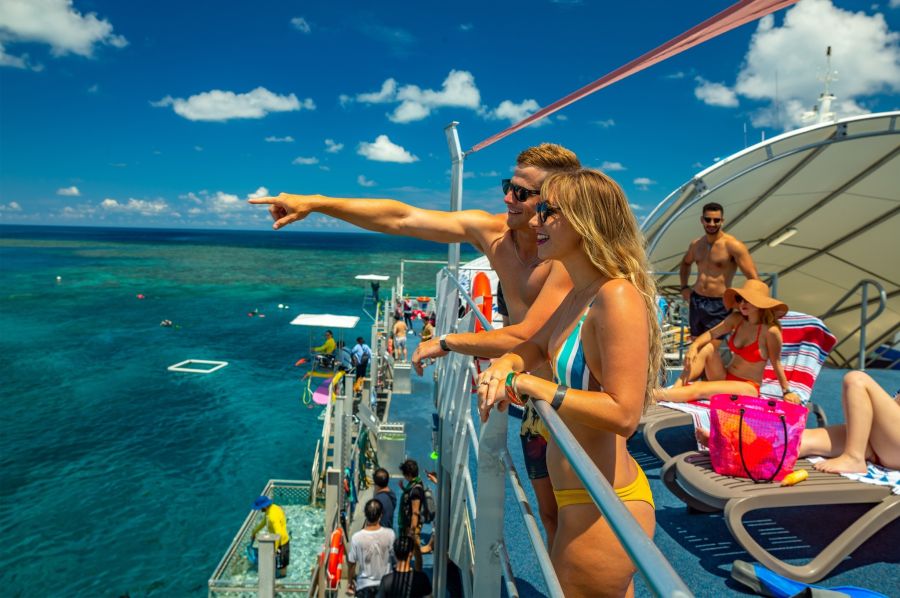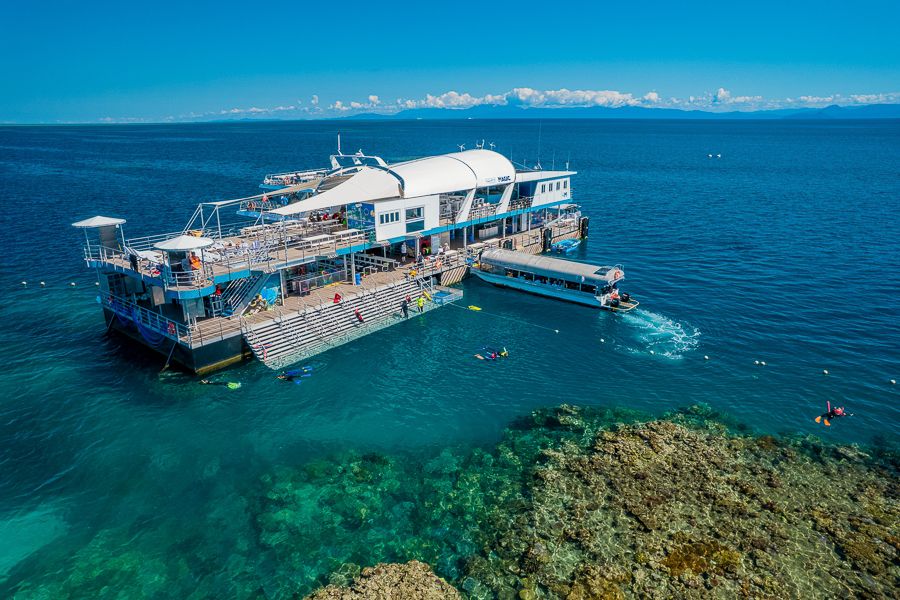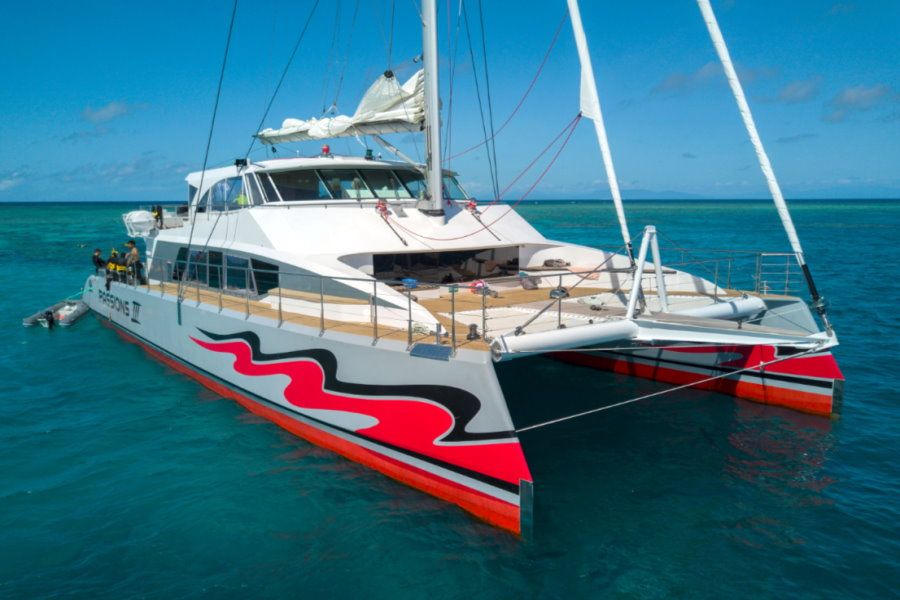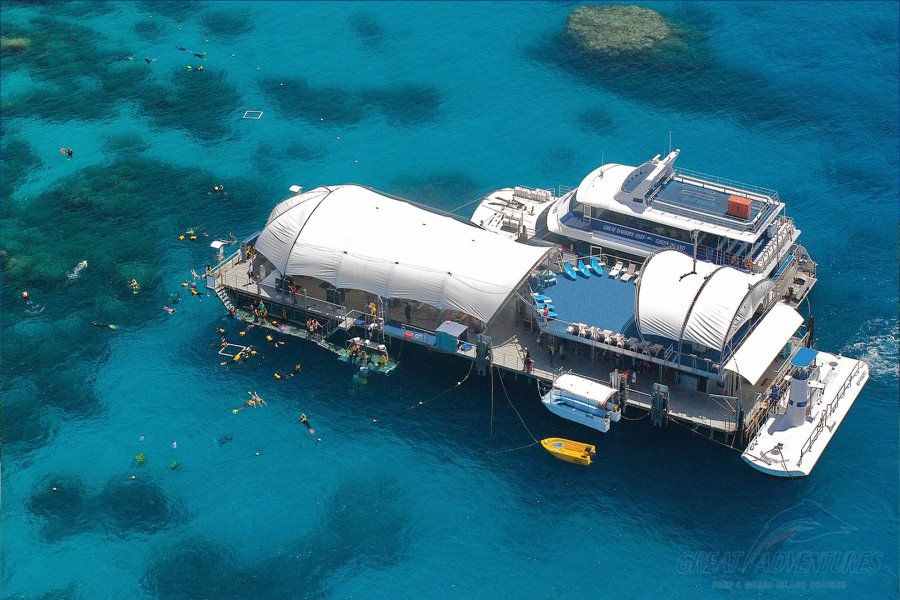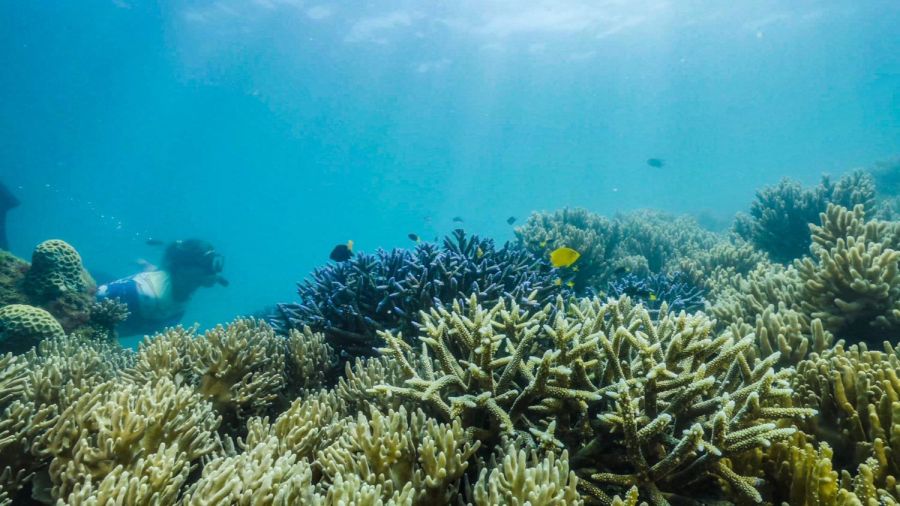Moore Reef, Great Barrier Reef
Moore Reef is a popular spot for snorkelling and scuba diving located about 40km off the coast of Cairns. Sitting pretty inside the Great Barrier Reef Marine Park, Moore Reef is well-known for having a diverse population of colourful corals and tropical marine life. This article details what you need to know about this beautiful reef system that offers an incredible experience exploring a World Heritage Listed site.
Moore Reef has three outer reef activity platforms, in the form of Reef Magic, Great Adventures and Sunlover pontoons, all featuring a helipad allowing for scenic flights over the reef!

How long does it take to get to Moore Reef?
The cruise out to Moore Reef takes about 1.5 to 2 hours by boat. Multiple tour operators travel to Moore Reef where you can visit activity pontoons designed for endless underwater exploring. Combine your trip to Moore Reef with a visit to Fitzroy Island or Green Island, giving you the best of both worlds exploring the outer reef and tropical islands.

Check out our most popular tours that visit Moore Reef
How Deep Is Moore Reef?
Moore Reef ranges from 1-25 metres in depth, making it great for scuba diving, with plenty of spots that are also great for snorkelling. It’s a favourite reef for many visitors, as it promises a huge variety of marine life and coral formations! Drop-offs and sea caves make for diverse underwater adventures each and every time, providing guests with a memorable Great Barrier Reef experience.

Marine Life you might see at Moore Reef
Sea Turtles
Sea turtles are always a favourite to spot while snorkelling or diving, no matter where you are in the world! The Great Barrier Reef is home to 6 out of 7 species of all sea turtles found worldwide and they are often spotted while guests explore the many reefs here. Keep your eyes open as you look for these camouflage experts - they blend in seamlessly with the coral and surrounding reef!

Batfish
Batfish are a friendly species of reef fish they are often seen hanging around the bottom of the boat. Keep an eye out for these flat, disk-shaped fish as soon as you pull up to the reef as they often come to greet the boat. They have vertical black stripes on a silver body and are generally not very afraid of humans, making for a great subject for a picture or two!
Moorish Idols
Moorish Idols are easily distinguished by its appearance, with black, white and yellow colouring consisting of black vertical bands and a long dorsal fin that extends behind its body. They are famous (cinematically speaking) as one of their kind appears in the movie ‘Finding Nemo’ as the jaded aquarium fish, Gill. They are found in a variety of reef environments, so keep an eye out for these beautiful fish wherever you go!
Maori Wrasse
Maori Wrasse are known as the puppy dogs of the Great Barrier Reef! These stunningly large and beautiful reef dwellers are known for approaching scuba divers and snorkellers and are often curious about their visitors. Females are a smaller, brown version of males, who are large, colourful and have intricate patterns on their faces. They have large, pouty lips supported on a huge mouth, giving them a cute, yet larger than life look! They are bluish green and are also known as the humphead wrasse, Napoleon Wrasse or Napoleon fish.

Damselfish
Damselfish are a populous species on most parts of the Great Barrier Reef. These small (but mighty) fish come in a huge variety of shapes and colours and are often spotted in groups. They hide in soft corals, darting out to grab food as it passes by, and will defend their territory with their life (but don’t worry, they are no danger to people).
Black and White Tip Reef Sharks
Black and white tip reef sharks are another fan favourite for those snorkelling or diving on Moore Reef. Far from dangerous, these shy toothy predators prefer to focus their attention on smaller fish and marine animals and are mostly afraid of humans. They grow no larger than 1.6m and have a slender body and bulky head and are easily distinguished from other reef sharks by the black or white tips on their dorsal and tail fins. They are usually hiding out in caves by day, and spend their nights hunting on the reefs.

Corals
Due to the different environments found within Moore Reef, you will find a huge variety of corals including mushroom coral, brain coral, finger corals, staghorn, and honeycomb coral. Each different type of coral is unique in appearance, colouring and the animals it may host! Corals are the building blocks of the Great Barrier Reef, playing the most vital role in its existence and health.

